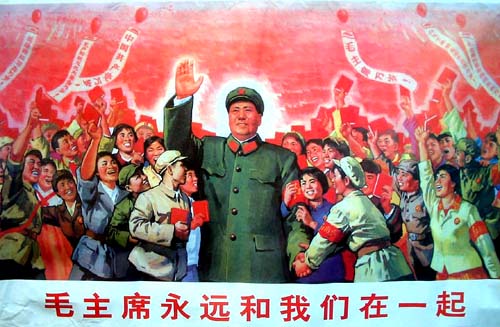A brief history of Franklin Delano Roosevelt, the “Friend of Labor”
Because of the late unpleasantness, there’s been a lot of debate among a certain kind of Leftist as to what attitude the Left ought to take towards the Democratic Party’s big win at the polls, and the grassroots efforts by eager young Obamarchists to help bring it about. In the name of critical support,
many state Leftists — particularly those who fancy themselves Progressives
— urge other Leftists to hop on board the Democratic Party train; those who are a bit more skeptical, point out that, for people seriously concerned with peace, civil liberties, labor radicalism, anti-racism, ending bail-out capitalism,and so on, an Obama Presidency is an extremely limited victory at best, and those who know a bit of history point out that the Democratic Party has been the graveyard of social movements for over a century now, with one movement after another being diverted from grassroots action on behalf of their primary goals into the secondary or tertiary goals of bureaucratic maneuvering, party politicking, canvassing, fund-raising, or shamelessly apologizing for Democratic Party politicians. And once they go in, movements more or less never come out.
Perhaps not surprisingly, given the current economic crisis, in discussions like these a lot of electoralist Progressives
very quickly dig up the decaying corpse of Franklin Roosevelt, apparently in order to demonstrate a case where so-called critical support
from the Left worked — that is, it supposedly worked because it supposedly got us the New Deal, and the New Deal supposedly represents a series of victories that Leftists should feel good about. The problem is that this picture is false in just about every detail. The New Deal was achieved in spite of the grassroots efforts of the American Left, not because of them. It was, in fact, put through largely as a means to co-opt or stifle the American Left. And what was put through ought to be considered a travesty by anyone for whom economic Leftism is supposed to mean an increase in workers’ power to control the conditions of their own lives and labor, rather than an increase in government’s power to make businessmen do what politicians want them to do.
So here is a brief history, contributed by a member of the Movement for a Democratic Society listserv (in response to a series of uncritical critical support
apologetics and name-drops to Roosevelt), of the administration of Franklin Delano Roosevelt, the friend of labor
and patron saint of the American Progressive
Left.
From: bob
To: MDS-Announce
Date: 5 November 2008 7:51 PMOct. 1933, 4 strikers killed in Pixley Ca. textile strike.
Early 1934, Roosevelt intervenes in the auto industry on behalf of company unions as opposed to worker organized unions.
In 1934, General Strikes in Toledo, San Francisco and Minneapolis began to threaten the capitalist order.
IN 1935, the Wagner Act was passed to regularize labor relations. The NLRB was set up to mediate between labor and capital ending the surge of general strikes.
In 1936-7, workers began to use the sit down strike to great advantage. In 1937, the Roosevelt appointed National Labor Relations Board declared them to be illegal. Later the Supreme Court in 1939, dominated by pro-Roosevelt judges, declared sit-down strikes to be illegal, taking the wind out of the sails of the labor movement.
When labor leaders tried to gain Roosevelt’s support in critiquing the killing of 18 peaceful workers in the steel strikes of ’37, Roosevelt refused, thus condoning the killings.
IN 1938 and 39 with rising unemployment, Roosevelt cut programs for the poor and unemployed.
The passing of the Social Security Act institutionalized the incredibly regressive payroll tax while postponing and benefits and establishing a retirement age beyond the life expectancy of workers so that payments would be minimal. Additionally, most women and Afro-Americans were purposefully not covered by the Act. At the time it was established the NAACP protested the racism inherent in the exclusions of most job categories employing blacks. The original act was also blamed for contributing to the economic downturn of 1937 because the government collected taxes from workers but paid no benefits to workers during this time period. Initially, no benefits whatsoever were to be paid until at least 1942. Amendments in 1939 changed that to 1940 but only encompassed a tiny minority.
Friend of LaborRoosevelt in 1940 signed the Smith Act which had been proposed by a Democrat and passed by a Democratic Congress. The first prosecutions were ordered by Roosevelt’s Attorney General Francis Biddle. Unfortunately, the split between the orthodox communists and the Trotskyists resulted in the persecution of the Trotskyists.When the Federal Theater Project planned a musical production in 1937 attacking corporate greed, Roosevelt shut it down. He then had the theatre padlocked and surrounded by armed soldiers.
So much for the concept of
political spaceunder the Democrats.One mistake rather consistently made by a good chunk of progressives is to frame an analysis based on the paranoia of the extreme right wing, taking their statements as if they were facts.
So if Sean Hannity and Rush Limbaugh and their ilk criticize some facet of American life or history (for example FDR as being some sort of left enabler), the progressives then want to disagree completely with Hannity et al and thus accept whatever BS he put forward but take the opposite point of view on it. So we then have progressives
defendingRoosevelt’s supposed progressive leanings or opening political space for the left or whatever phrasing suits their purposes. It’s not helpful to let the extreme right thereby define the nature of political discourse. It leads to an incredibly false and warped view of society and history.Rather than helping to create an opening for the left in the 1930s, Roosevelt did what he could to shut off all openings that had been created by the workers themselves. He ended the surge of general strikes, then he ended the surge of sit down strikes. He put a stop to progressive artists. Clamped down on the radicals of the time period. Condoned the police and national guard killing of protesting workers. Collected regressive taxes from workers while promising them pension benefits at a point in the future for those fortunate enough to survive their employment and avoid an early death.. He continued racist and sexist policies especially relating to employment, government sanctioned discrimination and unfair dispersal of social benefits.
The main thing I would want to add to the analysis is that, unfortunately, I don’t think that the veneration of St. Franklin is solely due to the rush to take an equal-but-opposite reaction to the vilification of Roosevelt by plutocratic Right-wing hacks like Limbaugh or Hannity. The attitude is much older than Right-wing hate radio, and I think it is deeply rooted in the historical narratives and the self-conception of the Progressive
wing of the Left. At the time Roosevelt went on a full-bore attack against the radical Left but enjoyed the support of the professional-class Progressive
Left — whose influence he dramatically increased, and whose fortunes he subsidized on the taxpayer’s dime, with his massive expansion of the civil service and government planning bureaucracy. And he is venerated today by so many on the Left because so many on the Left continue allow their message to be set by the agendas of the political parties and by the nostrums of mid-20th century vital center
corporate liberal politics. The counter-historical hagiography isn’t just a way of reacting to the Right; it’s also a way that the Establishmentarian Left keeps the radical Left in line, diverts all too many of us into the failed strategy of increasing workers’ power by increasing government power, and blinds all too many to the fact that their efforts within or on behalf of the Democratic Party are failing repeatedly, or when they succeed,
inevitably succeed in increasing the power of professional government planners, without any significant gains for ordinary workers.
So it is really refreshing, at this historical moment, to see some folks challenging St. Franklin from the Left. And it’s deeply unfortunate, but not surprising, that it is refreshing to see that. It ought to be easy and common to make the Leftist case against a millionaire dynastic politician who officially kicked off his administration with a series of massive bank bail-outs, systematically attacked labor radicals, created a bureaucratic apparatus intended to buy off and domesticate labor moderates and conservatives, while sidelining or criminalizing labor’s most effective tactics, and presided over repeated physical attacks on organized workers. A millionaire dynastic politician who, in 1936, ordered J. Edgar Hoover to ramp up federal surveillance of questionable
domestic political groups, and who aggressively dispensed with traditional restraints on unilateral executive power in order to pack the courts in favor of his own policies and to elevate himself to President-for-Life. A President-for-Life who conscripted millions of workers in the United States’ first ever peacetime military draft, who then spent a couple years deliberately wangling his way into a position where he could throw his new conscript army into the largest and most destructive war in the history of the world, who then, using the exigencies of a global war on tyranny as his excuse, drove Congress to create the House Un-American Activities Committee, imprisoned war protesters and political opponents on sedition
and espionage
charges, extracted no-strike agreements from the now-politically-controlled labor unions, commandeered virtually every good and imposed massive rationing and government-mandated wage freezes on American workers, created the modern military-industrial complex, ordered the firebombing of hundreds of German and Japanese cities, and, with a series of unilateral executive orders and military proclamations, summarily seized the property of hundreds of thousands of Japanese Americans, imposed arbitrary curfews on them based solely on their nationality, and finally sent in the military to roust them out of their homes and march them into concentration camps scattered across the American West.
Unfortunately, that kind of talk doesn’t square with the preferred historical narrative of Democratic Party politicians, and (therefore) it doesn’t much suit those who have ambitions that depend on currying favor with Democratic Party politicians. So it’s not the sort of thing that you hear much about. But it is the sort of thing that we can remember, and that we can talk about, whether they want us to or not.
See also:
- GT 2008-02-25: I am shocked–shocked!–to find that politics is going on in here!
- GT 2006-01-04: Evildoers
- GT 2005-12-30: Over My Shoulder #4: Paul Buhle's Taking Care of Business: Samuel Gompers, George Meany, Lane Kirkland, and the Tragedy of American Labor
- GT 2004-05-01: Free the Unions (and all political prisoners)!


